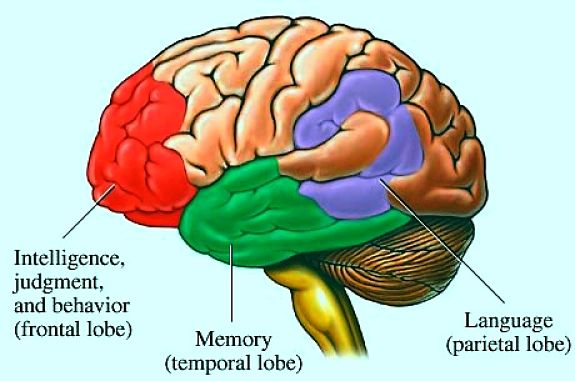If you've ever wondered where memories are stored in the brain, we've got some answers for you. But let's start at the beginning, shall we? Learning and memory are complex processes that involve multiple regions of the brain working together. These processes allow us to acquire new information, store it, and retrieve it later. Without them, we wouldn't be able to do anything from remembering where we parked our car to recalling important events from our childhood.
So, Where Are Memories Stored?
What Neuroscience Tells Us
According to research, memories are stored throughout the brain in the form of neural connections. When we learn something new, these connections are strengthened through a process known as synaptic plasticity. This means that certain neurons become more likely to fire in response to specific stimuli, making the memory easier to retrieve in the future.

Different Types of Memory
There are different types of memory, and they are believed to be stored in different regions of the brain.
- Short-term memory: This type of memory allows us to temporarily hold information in our minds to use it right away. Short-term memory is believed to be stored in the prefrontal cortex.
- Long-term memory: This type of memory allows us to store information for longer periods of time. Long-term memory is believed to be stored in different regions of the brain depending on the type of memory. For example, memories of events and experiences are stored in the hippocampus, while procedural memories (like riding a bike) are stored in the basal ganglia.
How to Improve Your Memory

1. Practice
Like anything else, memory improves with practice. Challenging your brain with new tasks and exercises can help improve your memory and keep your mind sharp.
2. Pay Attention
We're much more likely to remember something if we pay close attention to it. Try to eliminate any distractions and focus your attention on the task at hand.
3. Repeat Information
Repeating information to yourself is a simple but effective way to improve your memory. This technique helps to reinforce neural connections and store information in long-term memory.
4. Get Enough Sleep
Studies have shown that getting enough sleep is crucial for consolidating memories. During sleep, the brain processes and consolidates new information, making it easier to recall later.
5. Eat a Healthy Diet
A healthy diet is good for both your body and your brain. Eating a diet rich in fruits, vegetables, whole grains, and healthy fats can help improve memory and cognitive function.
6. Reduce Stress
Chronic stress can have a negative impact on memory and cognitive function. Finding ways to manage stress, such as through meditation or exercise, can help improve memory and overall brain health.

How to Memorize Things Quickly
Whether you're studying for a test or trying to remember important information for work, being able to memorize things quickly can be a valuable skill. Here are some tips to help you do just that:
1. Use Mnemonics
Mnemonics are devices or strategies that help you remember information. One common example is using acronyms to remember a list of items, such as HOMES to remember the Great Lakes (Huron, Ontario, Michigan, Erie, Superior).
2. Break Information into Chunks
Breaking information into smaller, more manageable chunks can make it easier to remember. Try to group related information together and focus on one chunk at a time.
3. Visualize Information
Visualizing information can help make it more memorable. Try to create mental images or draw diagrams to help you remember information.
4. Use Repetition
Repeating information to yourself can help reinforce neural connections and make information easier to recall. Try repeating information out loud, writing it down, or using flashcards to help memorize information.
5. Get Enough Sleep
As we mentioned earlier, getting enough sleep is crucial for memory consolidation. If you're trying to memorize something, make sure to get plenty of sleep to give your brain the best chance of storing the information.
6. Test Yourself
Testing yourself on the information you're trying to memorize can help reinforce the neural connections and make the information easier to recall. Try taking practice tests or quizzing yourself on the information to help improve your memory.
Conclusion
Memory is a fascinating and complex process that is crucial for our everyday lives. While we still have much to learn about how memory works, research has given us some insights into where memories are stored in the brain and how we can improve our memory. By practicing good memory habits and using proven techniques like repetition and visualization, we can improve our memory and keep our brains sharp.
Find more articles about Where Is Memory Stored In Brain